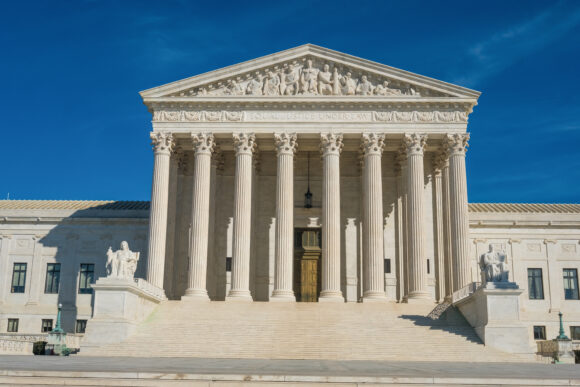The Supreme Court on April 2 sided with a truck driver who wants to sue for triple damages over a CBD hemp product he said was falsely advertised as being free from marijuana’s active ingredient and resulted in him getting fired.
The 5-4 opinion clears the way for the trucker to seek triple damages under an anti-mob law. It doesn’t decide his underlying claims that the product’s THC content got him fired.
Douglas Horn said he wanted to treat chronic shoulder and back pain after a serious accident. He chose the product because it was advertised as being free from THC, which gives marijuana its high. CBD is a generally legal hemp compound that is widely sold as a dietary supplement.
But lab tests taken after Horn was fired for failing a routine drug test confirmed the product did have THC, he claimed.
Horn sued the Vista, California-based Medical Marijuana Inc. and sought triple damages under the Racketeer Influenced and Corrupt Organizations (RICO) Act.
The company pushed back, disputing Horn’s account and saying he can’t sue for higher damages because he’s claiming a personal injury rather than harm to his business.
Horn said his firing was a business injury and he’s been financially ruined, and an appeals court allowed Horn’s claim to go forward.
Writing for the court, Justice Amy Coney Barrett said Horn had the better argument. “In short, a plaintiff can seek damages for business or property loss regardless of whether the loss resulted from a personal injury,” Barrett wrote for an unusual coalition that included her fellow conservative Justice Neil Gorsuch and the nine-member court’s three liberals.
Barrett also noted that the decision was no guarantee that Horn ultimately would prevail.
In dissent, Justice Brett Kavanaugh wrote that “RICO’s categorical exclusion of personal-injury suits” should have been enough to end Horn’s case.
Topics Auto Personal Auto Cannabis
Was this article valuable?
Here are more articles you may enjoy.



 Allstate Doubles Q4 Net Income While Auto Underwriting Income Triples
Allstate Doubles Q4 Net Income While Auto Underwriting Income Triples  AIG, Chubb Can’t Use ‘Bump-Up’ Provision in D&O Policy to Avoid Coverage
AIG, Chubb Can’t Use ‘Bump-Up’ Provision in D&O Policy to Avoid Coverage  Former Ole Miss Standout Player Convicted in $194M Medicare, CHAMPVA Fraud
Former Ole Miss Standout Player Convicted in $194M Medicare, CHAMPVA Fraud  MAPFRE Denied Injunction Against AAA Auto Insurance Sales in Massachusetts
MAPFRE Denied Injunction Against AAA Auto Insurance Sales in Massachusetts 


